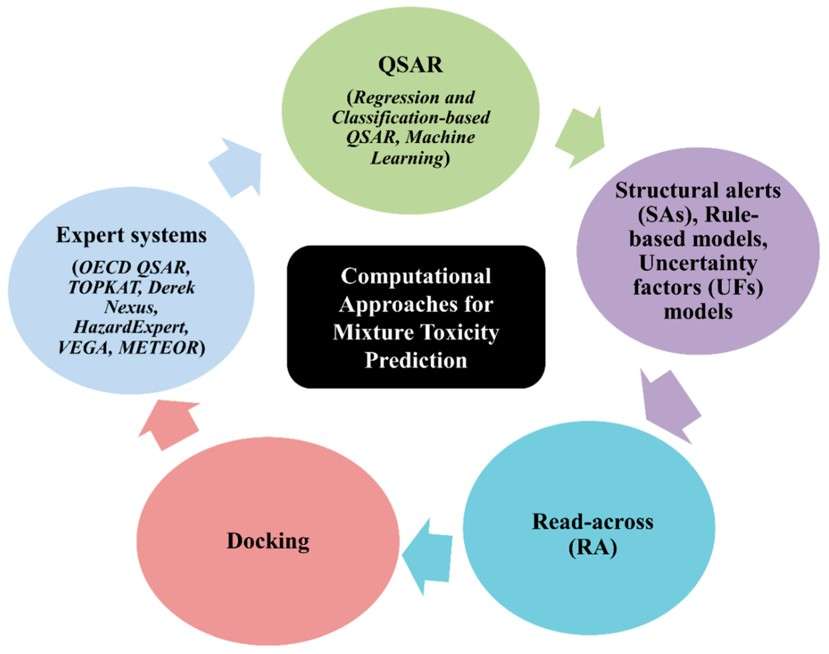Determining the toxicity of chemicals is necessary to identify their harmful effects on humans, animals, plants, or the environment. It is also one of the main steps in drug design. In silico toxicology is one type of toxicity assessment that uses computational methods to analyze, simulate, visualize, or predict the toxicity of chemicals. Creative Biolabs is dedicated to establishing the most exquisite service platform for our clients and providing one-stop structure-based toxicity modeling services for our clients to promote their projects.
Toxicity is a measure of any undesirable or adverse effect of chemicals. Toxicity tests aim to identify harmful effects caused by substances on humans, animals, plants, or the environment through acute-exposure (single dose) or multiple-exposure (multiple doses). Several factors determine the toxicity of chemicals, such as route of exposure, dose, frequency of exposure, duration of exposure, ADME properties (absorption, distribution, metabolism, and excretion/elimination), biological properties, and chemical properties. Animal models have been used for a long time for toxicity testing. However, in vitro toxicity tests became plausible due to the advances in high throughput screening. In silico toxicology is one important type of toxicity assessments that uses computational resources to organize, analyze, model, simulate, visualize, or predict the toxicity of chemicals.
Several in silico approaches have been developed for predictive toxicology. In silico methods vary in complexity and performance and can be broadly classified into four major categories.
There are various procedures to unravel general or specific compound toxicity/safety and each method has respective strengths, limitations, the scope of application and interpretation. The underlying principle is to find the suitable and the most effective method to address the particular issue.
 Fig.1 Types of computational approach for a mixture’s toxicity prediction.1
Fig.1 Types of computational approach for a mixture’s toxicity prediction.1
Determining the toxicological effects of chemicals as early as possible is essential for human health and environmental safety. The toxicity of a drug refers to the adverse effect on the whole organism, particular organ, or substructure of the organism. However, in vivo and in vitro high-throughput assays are expensive and time-consuming. Computational methods aim to complement in vitro and in vivo toxicity tests to potentially minimize the need for animal testing, reduce the cost and time of toxicity tests, and improve toxicity prediction and safety assessment. In addition, computational methods have a unique advantage of being able to estimate chemicals for toxicity even before they are synthesized. We can offer a variety of in silico toxicology modeling services to meet specific customer requirements.
Creative Biolabs has focused on the development of computational drug design for years. We whole-heartedly cooperate with you to accomplish our shared goals. Our team provides you with outstanding support and meets your specific needs with a professional technology platform. If you are interested in our services, please contact us for more details.
Reference
All listed services and products are For Research Use Only. Do Not use in any diagnostic or therapeutic applications.
| USA:
Europe: Germany: |
|
|
Call us at: USA: UK: Germany: |
|
|
Fax:
|
|
| Email: info@creative-biolabs.com |
